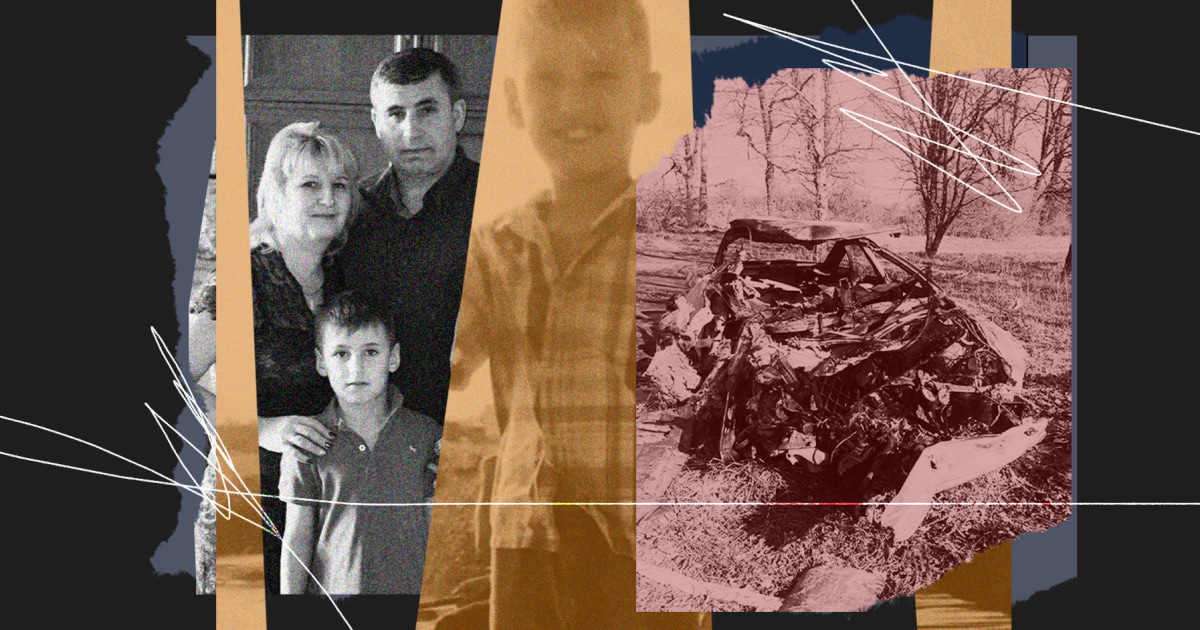SOFIIVKA, Ukraine — After Russian soldiers killed his parents in front of him soon after the invasion began, 10-year-old Andriy Bliznyuk hasn’t been able to sleep alone.
“He is a traumatized child,” his maternal grandfather, Oleksandr Chernoval, said.
On March 1, Andriy, his mother, Oksana, father, Mykhailo Bliznyuk, and uncle Serhiy Salivon were trying to escape the advance of the invading troops near the capital, Kyiv, when the boy says they encountered a column of Russian tanks.
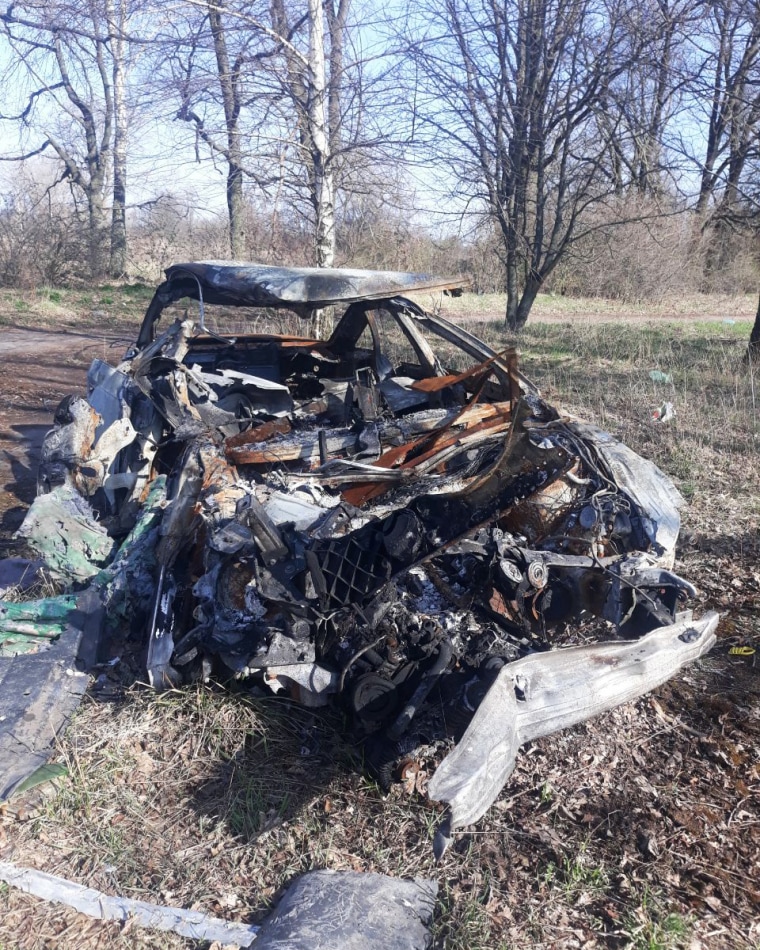
According to Andriy, one of the tanks rumbled over and crushed their beige Audi with all of them inside. In a bizarre act of mercy, Russian soldiers plucked him from the car after he waved his hand from the wrecked vehicle, he says. Then, he says, they opened machine-gun fire on the car.
Andriy says he remembers lying on the side of the road as the car burst into flames. His mother, father and uncle were dead. A stranger found him and took him to a hospital, he says.
The deaths of Andriy’s parents and uncle are just one of more than 30,000 alleged Russian war crimes being investigated by Ukrainian prosecutors. Kyiv has accused Russia of comitting acts that violate the laws of war since the early days of the Feb. 24 invasion, including deliberately targeting civilians and civilian infrastructure. Moscow has denied targeting civilians, despite what Ukraine says is evidence of entire towns being destroyed by the Russian army.
“Ukraine: The Search for Justice” airs Friday, Sept. 16th at 10 p.m. ET on MSNBC.
Since that moment six months ago, Andriy has spent many nights next to his grandfather.
“He is afraid of anything in the house — doors, curtains, shutters — being open,” his grandmother Kateryna Chernoval says, her eyes wet with tears.
He is too scared to go to the toilet by himself, she added, and needs someone to stand next to him.
Other than Andriy, there were no eyewitnesses to his family’s deaths. The wreckage has since been removed and family members were able to bury their loved ones’ remains.
Ukrainian authorities said they are investigating the incident as a potential war crime.
Before and after
Wearing a green Gap sweatshirt with long sleeves on a sunny summer day, Andriy helps his grandmother pick strawberries and spring onions in Sofiivka, a village some 50 miles east of Kyiv.
Before the war, he lived with his mother and father in the Kyiv suburb of Brovary. He loved school, especially math, gym and computer science classes, he says with a smile. The fourth grader kept pet turtles and a sizable collection of toy cars, and went on fishing trips with his dad.
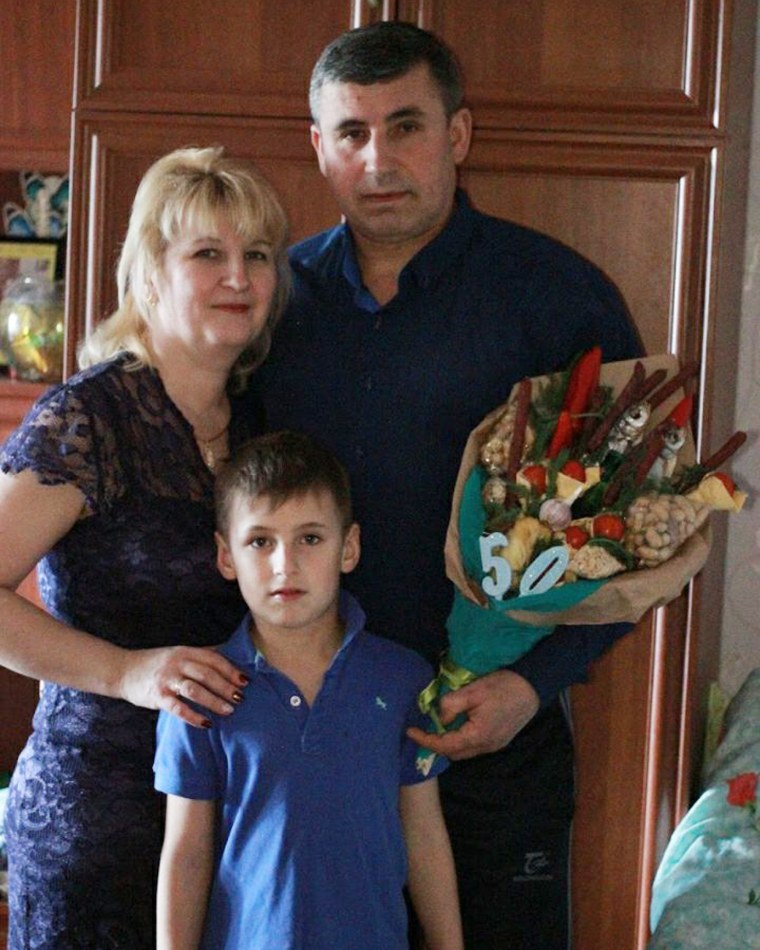
Andriy’s eyes light up as he remembers how his mother would take him to school. She eventually let him cross the street on his own.
He recalls that she grew flowers and his dad repaired cars as a hobby.
He picks at his fingers and his smile turns nervous when asked about that fateful morning on March 1. He grows quiet and avoids questions about his new life with his older sister, Tetyana Muravska, 26, who is now his legal guardian.
While the adults surrounding him openly shed tears while talking about how his parents died, Andriy never cries.
“Everything is fine,” he says when asked how he is doing.
Muravska, who has a 6-year-old daughter, doesn’t think her brother has fully grasped what has happened, though he is aware his parents are not coming back.
He doesn’t talk much about it or his feelings, she said.
“During the day, he is out like an ordinary child,” Muravska says. “He runs, plays soccer and talks to his friends.”
Things change in the evenings, she says.
“He doesn’t stay alone and he is very afraid of sounds. And psychologically, he can be closed off. He will say one or two phrases.”
Their parents’ home in Brovary is filled with photos of a smiling family ringing in the new year, celebrating a birthday or going on road trips to the seaside.
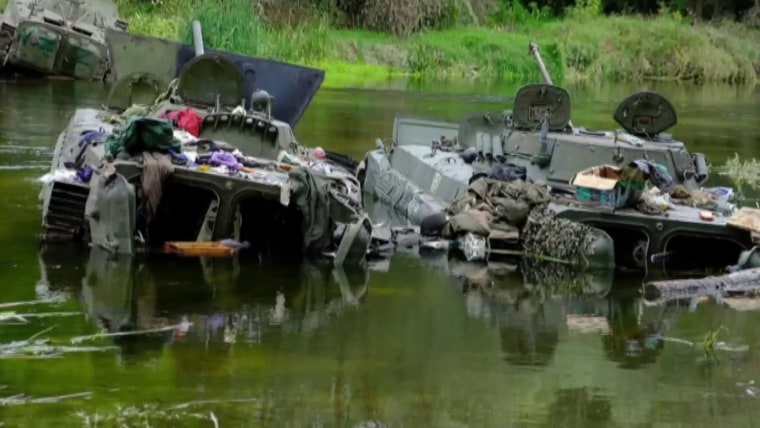
She too struggles to believe what has befallen them.
“My brain makes me think that they have just turned off their phones and gone somewhere,” Muravska says.
Russia’s defense and foreign ministries did not respond to requests for comment on what happened to Andriy’s family and accusations of war crimes in Ukraine. Moscow has previously categorically rejected any allegations of war crimes, or that its forces have targeted civilians.
While Ukraine has vowed to bring all those responsible for committing war crimes to justice, only a small handful of Russian soldiers have been brought to trial so far.
International human rights organizations have documented what they say are dozens of cases of murder, rape and torture of Ukrainian civilians at the hands of Russian soldiers since President Vladimir Putin started the invasion. The United Nations has also blamed Moscow for indiscriminately shelling populated areas and killing civilians.
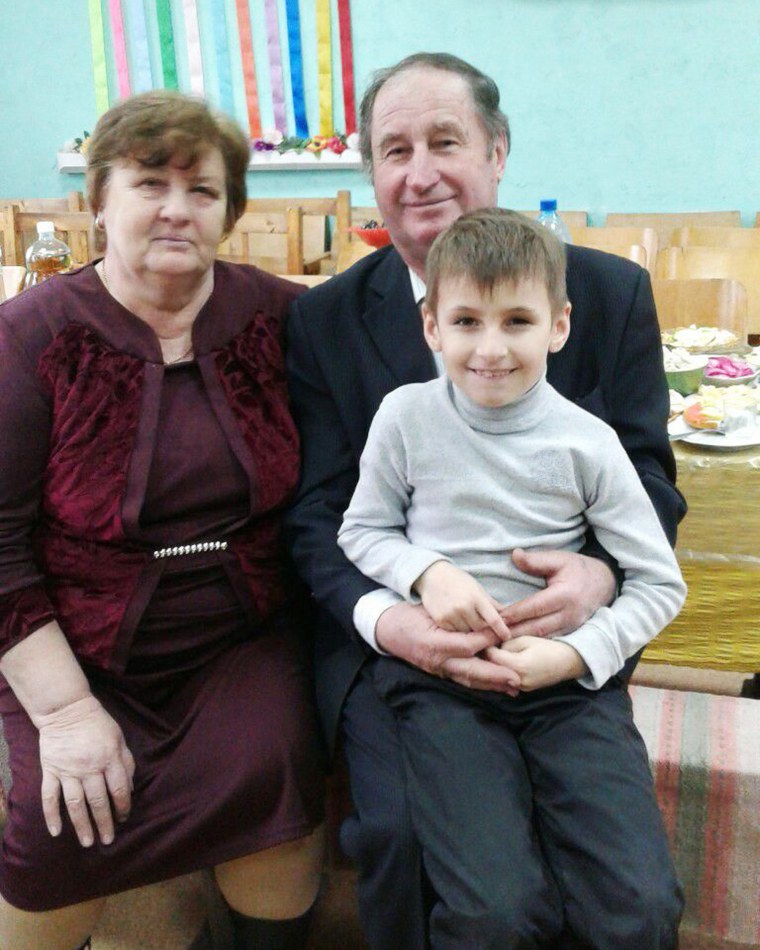
Images of bodies in civilian clothes and reports of atrocities in the areas outside Kyiv in the early weeks of the war sparked calls for justice from the United States and its allies.
Muravska says she hopes someone will get to the bottom of what happened to her parents.
But even if there is justice, she says, she won’t feel whole again.
“No one will give me my parents back,” she says.
Her grandparents have promised to help her take care of Andriy for as long as they can, but they are concerned about his recurrent fears and mental trauma.
“He will never get better,” Kateryna says of her grandson.
But Oleksandr is more optimistic. Andriy is slowly showing signs of getting back to normal, he says, even riding his bike with his friends in the village.
“He’ll never be better than he was before, but still,” he said. “We will be by his side.”
Charlotte Gardiner reported from Sofiivka and Yuliya Talmazan from London.


